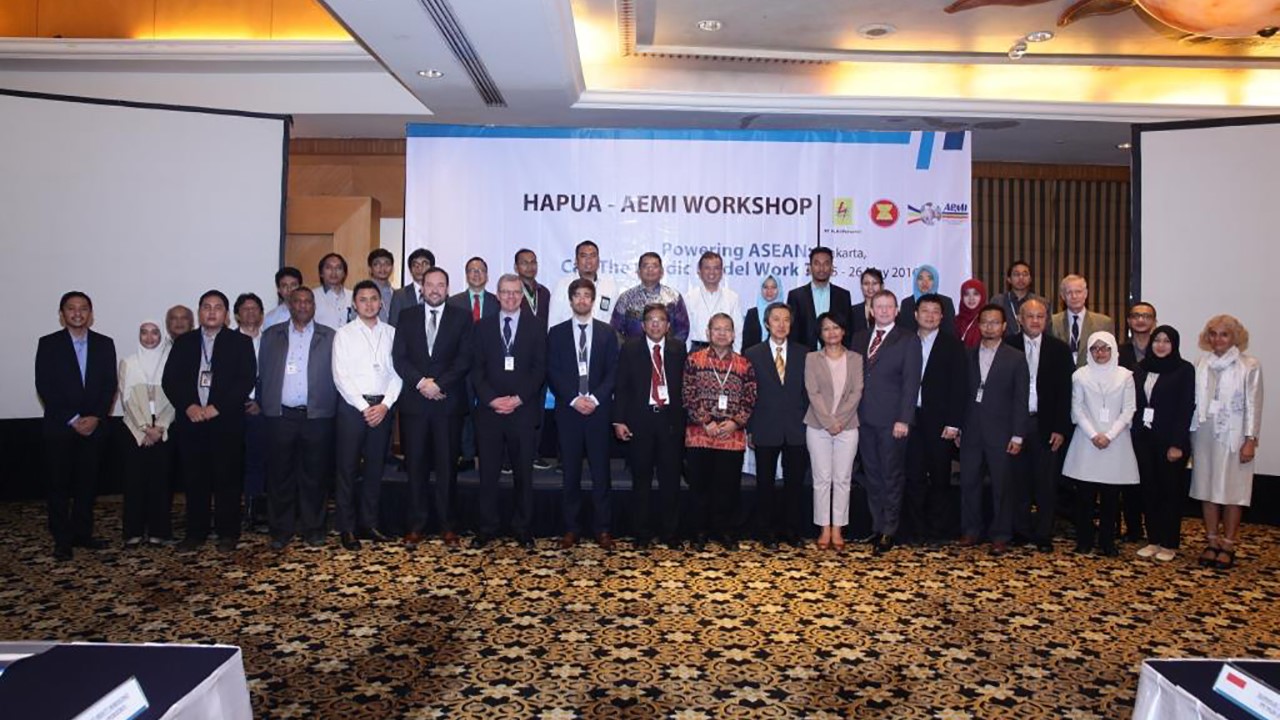Menu
On 24 – 26 May 2016, the ASEAN Energy Market Integration (AEMI) and Heads of ASEAN Power Utilities/Authorities (HAPUA) jointly organised a workshop titled “Powering ASEAN: Can the Nordic Model Work?” It was held in Jakarta, Indonesia, and aimed to provide strategic discussions on multilateral power trading in the ASEAN region, by taking the perspectives of the Nordic Model, the Nordic electricity exchange Nord Pool, and the Southern African Power Pool. The workshop also aimed to examine whether the model could be adapted to ASEAN Member States (AMS).

The Workshop was attended by 35 (thirty five) participants from ASEAN Power Grid Consultative Committee (APGCC), ASEAN Centre for Energy (ACE), ASEAN Secretariat, Chulalongkorn University (Thailand), Energy Commission of Malaysia, HAPUA, Indonesian Institute of Sciences, Ministry of Energy, Green Technology and Water of Malaysia, National University of Singapore, Nord Pool Consulting, Ricardo Energy and Environment, Royal Norwegian Embassy, Singapore Power LTD, Tenaga Nasional Berhad (Malaysia), PT Pembangkitan Jawa Bali and PT PLN (Persero), Indonesia.
Mr. Christopher G. Zamora, ACE’s Manager for the ASEAN Plan of Actions for Energy Cooperation (APAEC), presented the topic “Moving Forward with ASEAN Connectivity: The ASEAN Power Grid”. In his presentation, he mentioned that the growing demand for energy, which is driven by both economic and demographic growth, has been a challenge for ASEAN, and he highlighted the need for stronger energy cooperation towards connectivity and integration. To this end, he emphasised that ASEAN move towards greater integration, where Member States continuously implement domestic structural reforms to raise their productivity, competitiveness, inclusiveness, and a greater sense of community as visualised by the ASEAN Economic Community.
The 33rd ASEAN Ministers on Energy Meeting held in October 2015, Kuala Lumpur, Malaysia, has endorsed the APAEC 2015-2025 that serves as a blueprint for ASEAN to strengthen and deepen the cooperation and integration amongst the AMS. And this involves the successful realisation of the ASEAN Power Grid (APG) and the enhancement of gas connectivity by the means of the Trans-ASEAN Gas Pipeline (TAGP). Taking cognisance of the APG’s critical role for an efficient, reliable and resilient electricity infrastructure, the Workshop encouraged ASEAN Community to address APG’s key challenges on technical and cross border issues in order to embark on multilateral electricity trading. (AJ/RJPS. Photo credit: HAPUA)
